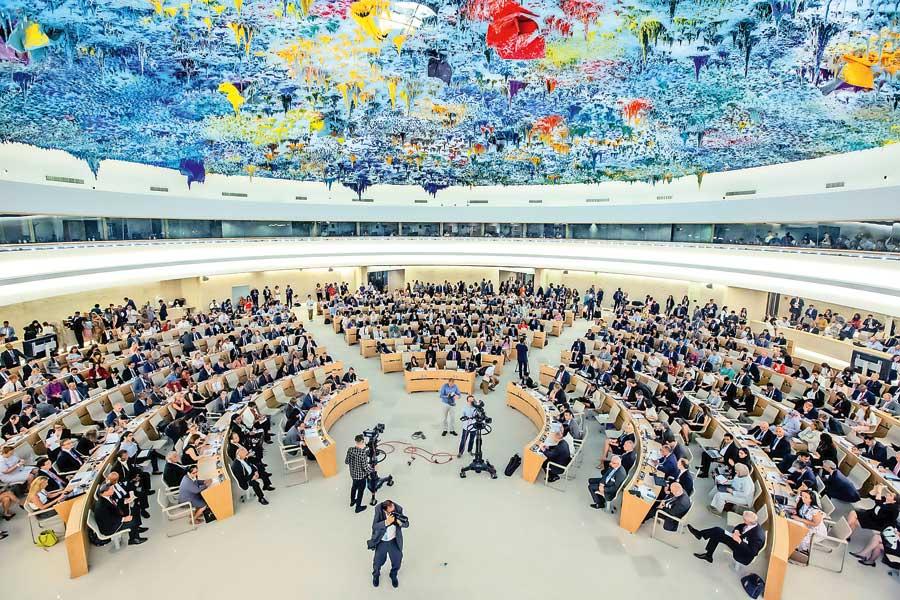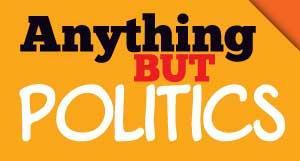Reply To:
Name - Reply Comment

The international debate on the draft resolution on Sri Lanka is heading to be more intense since the core-group of the countries led by the United Kingdom is heading to submit the final version of it ahead of a vote to be called at the United Nations Human Rights Council (UNHRC).
the countries led by the United Kingdom is heading to submit the final version of it ahead of a vote to be called at the United Nations Human Rights Council (UNHRC).
Sri Lanka has already rejected the resolution setting the stage for a division of votes of the UNHRC member States in case it is called.
The informal consultations on the draft resolution were conducted in Geneva on March 1 and 2, and the representatives of the countries that back Sri Lanka’s position made their points against country-specific resolutions whereas others called for a strongly worded one to deal with alleged Human Rights and accountability issues.
The resolution is brought by six countries called the Core Group –the UK, Canada, Germany, Malawi, Macedonia and Montenegro. 
UK Ambassador for Human Rights Rita French made the opening remarks. Each paragraph of the resolution was taken up for examination by the representatives of the participating countries. The UK which called for the informal consultation referred the operative paragraphs to the floor for discussion and debate in its numerical order as per the usual practice despite Sri Lanka’s insistence that operative paragraphs six and seven be taken up first, given their relevance to Sri Lanka’s government’s position. Sri Lanka’s position was backed by China and Pakistan.
The UK Ambassador for Human Rights, in her opening remarks, mentioned two main aspects of the resolutions- the call for strengthening the capacity of the Office of High Commissioner for Human Rights to consolidate, analyse and preserve information and evidence related to future accountability processes, and the request for the High Commissioner to report on the situation within the next 18 months.
 " Pakistan, China, Russia and Iran were among the countries that stood by Sri Lanka’s position. They also agreed to negotiate further in this regard on behalf of Sri Lanka at future events"
" Pakistan, China, Russia and Iran were among the countries that stood by Sri Lanka’s position. They also agreed to negotiate further in this regard on behalf of Sri Lanka at future events"
The UK’s position was widely supported by the countries in Europe, and some of them even called for strengthening the language of the resolution in the final draft.
Denmark, Norway, the United States, the Netherlands and France were among the countries that called for strong wordings of certain paragraphs of the resolution.
However, Pakistan, China, Russia and Iran were among the countries that stood by Sri Lanka’s position. They also agreed to negotiate further in this regard on behalf of Sri Lanka at future events.
At the latest event of informal consultations, that Japan took a moderate position on Sri Lanka’s issue was a welcoming development for the Sri Lankan delegation.
Japan and Sri Lanka have enjoyed a strong bond of friendship since the beginning despite occasional differences of opinions that came out in the public as far as some investment projects are concerned. Alongside, Japan is an ally of the western world.
 "The informal consultations on the draft resolution were conducted in Geneva on March 1 and 2, and the representatives of the countries that back Sri Lanka’s position made their points against country-specific resolutions whereas others called for a strongly worded one to deal with alleged Human Rights and accountability issues"
"The informal consultations on the draft resolution were conducted in Geneva on March 1 and 2, and the representatives of the countries that back Sri Lanka’s position made their points against country-specific resolutions whereas others called for a strongly worded one to deal with alleged Human Rights and accountability issues"
Notwithstanding it, Japan did not succumb to Western pressure. Instead, it chose to follow the moderate path maintaining friendly relations with Sri Lanka without antagonising the West at the same time.
Sri Lanka has faced six resolutions at the UNHRC. In recent times, Japan’s relations with Sri Lanka was strained a bit. One is over the cancellation of the light rail project which is a Japanese investment and the other related to Sri Lanka reneging from a commitment made under the previous government to develop the Eastern Container Terminal of Colombo Harbour involving India and Japan.
Both countries expressed their resentment regarding the move.
During the informal consolations, Japan stuck to its moderate position once again, and it appeared to be a sigh of relief for the Sri Lankan representatives who were otherwise facing the pressure of the Western world.
To win over or retain the support of a Western ally is crucial in legitimising arguments against the content of the resolution. Of course, Japan called for issues of Sri Lanka to be addressed, but through domestic mechanisms.
Japan has reason to believe in a domestic mechanism to resolve internal affairs rather than UN mechanisms. While talking about Sri Lanka’s issue, Japan questioned the effectiveness of International Investigative Mechanisms and Fact-Finding Missions.
The countries that back Sri Lanka appear to have taken positions in principle against the country-specific resolutions. They built a strong case against the resolution during the process of informal consultations.
Still, Sri Lanka has an uphill task in mustering the support of the member States to defeat the resolution. The UNHRC has a membership of 47 countries with voting rights. Voting cannot sometimes be influenced by the power and merits of arguments related to the case under discussion only.
The countries, in certain instances, decide as blocs when it comes to voting. For example, the members of the European Union vote according to a clearly defined line. Individual countries may have different views but stick to a common position as a regional group.
 "Denmark, Norway, the United States, the Netherlands and France were among the countries that called for strong wordings of certain paragraphs of the resolution"
"Denmark, Norway, the United States, the Netherlands and France were among the countries that called for strong wordings of certain paragraphs of the resolution"
In other instances, the member States swayed by the influence of the big powers. As such, hard work is always needed to secure the required number of votes.
By Wednesday, India has not yet committed its position on the resolution on Sri Lanka. But, the Sri Lankan delegation keep trying to woo India in Sri Lanka’s favour. India is incensed with Sri Lanka over the decision to move away from the previous government’s commitment to developing the Eastern Container Terminal.
To pacify a miffed India, the Cabinet decided at its last Monday’s meeting to develop the Western Terminal with India and Japan.
Cabinet Spokesperson Minister Keheliya Rambukwella said the approval was granted to develop it with investors nominated by India and Japan. However, it is learnt that India has not yet been consulted on the matter.
The 2019 MoU for the development of ECT involved the governments of Sri Lanka, India and Japan. However, what is now proposed is only an investment model that does not involve the respective governments.
Instead, it is an investment frame with a company of India. These are two different models for India which have strategic interests in the Colombo port. India’s response to the latest initiative by Sri Lanka is not yet pronounced as a result.